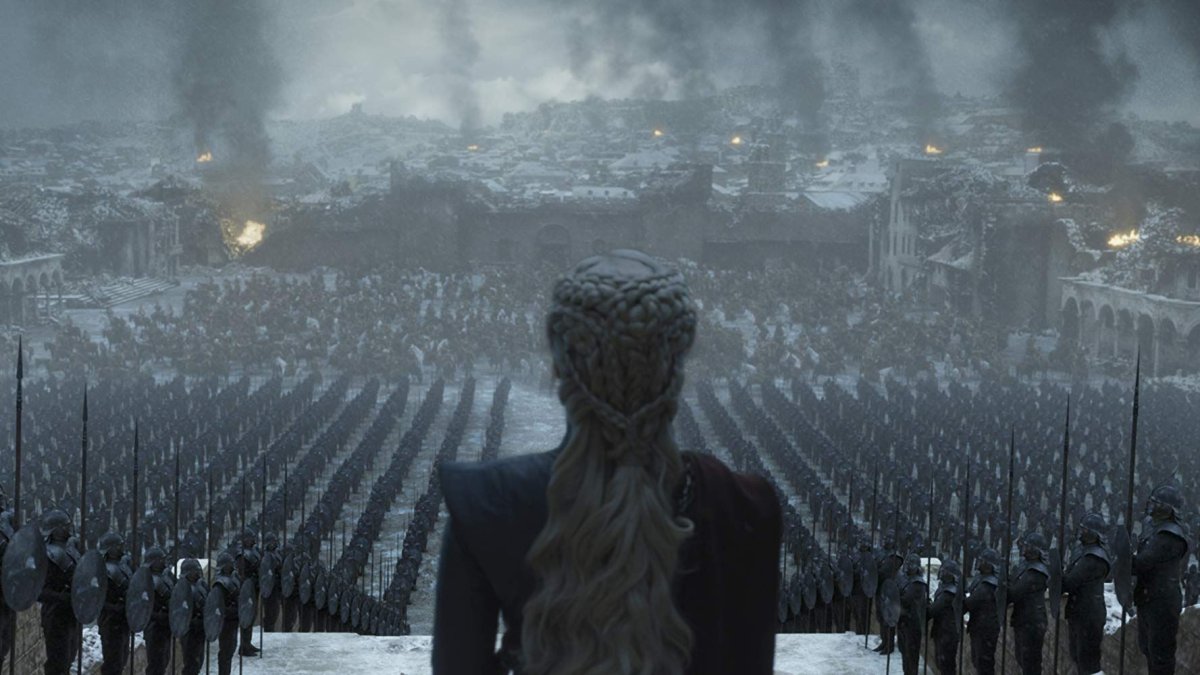This article contains spoilers from season eight, episode five.
Not only are more than 3,500 kids named Khaleesi disappointed by Game of Thrones' penultimate episode, almost one million people have signed a petition to have the entire last season rewritten. Up until season eight everything was quite like a theatre play. The story was calm, it built up narrative arcs, and it got people to really care for some very complex characters that had good and bad in them. Time moved slowly in those seasons.
Everything changed in season 8. Storylines have been rapid. Viewers know and realize it is the last season, but do not seem to have time to come to grips with the idea that they are going to lose virtually some of their best friends. People have built strong relationships with these characters. They are invested in these relationships. My research shows that if people watch an entire series and become big fans—and there are millions of us—then they feel similarly about fictional characters as we would about family or friends.
Game of Thrones is one of a number of new types of TV series. With the evolution of AMC, HBO and Netflix, people now buy into a channel, take out a subscription, and know they are going to watch an entire season. This switch from old-fashioned TV—where there was competition between channels and people could just switch between shows—to online streaming and subscription services, gives narrators more creative freedom to develop their shows. Writers are hired for an entire season, so they have much more time to develop a character. And they use that time to develop far more complex characters. Strong examples are Walter White in Breaking Bad and Frank Underwood in House of Cards. It took at least an entire season to really understand the good and the bad of these characters—and really care for them.
So these new business models have influenced the way the structure of the show develops and the way in which these stories are told. The narrative worlds are stricter in their frames, and viewers accept less ambiguity. We don't accept characters changing very quickly because characters have gotten so complex. Shows are no longer allowed to introduce elements that are somewhat outside of the box.
Writers have done this in Game of Thrones, possibly without realizing. Fans are not having relationships with flat, stereotypical characters. They are having relationships with complex human beings.
There was a lot of debate after the second episode of Game of Thrones' sixth season when Jon Snow came back from the dead. Until that moment lead characters who died, stayed dead. All of a sudden, an exception was introduced which did not seem part of the universe. With old-fashioned TV, such exceptions were not so much of an issue. Nowadays, it is an issue because today's viewers care more about the rules.
So the writers are really caught out by the format they created, which has a slowly moving timeline and a slow development of the universe and the characters. All of a sudden, Daenerys Targaryen, Khaleesi of the Great Grass Sea, one of the most beloved characters and a strong leader and role model for women, takes an unanticipated new direction and goes crazy. People are outraged and they have good reason to be.

Game of Thrones has spilled over into real life, with people endorsing the Breaker of Chains and taking the show as a model for talking about leadership. People name their children after Game of Thrones characters. Endorsements, role models, and naming conventions are only symbols however. Like an iceberg, the greater part is hidden.
Underwater, people's beliefs are shifting. A very inspiring, strong female lead character stands out in this time of #MeToo. There are a few others, but the Mother of Dragons was probably a cut above the rest. Then, all of a sudden, stereotypically for a fictional female character who cannot handle the pressure of losing a dear friend and a lover, she becomes overly emotional and snaps. It is incredible and irresponsible the showrunners resorted to such a quick'n'easy way out of a complex situation.
Tom van Laer is Associate Professor of Narratology at the University of Sydney, Australia. He discusses the angry fans and the real implications for female leadership of Game of Thrones on The Future, This Week podcast. Listen to the full episode here.
The views expressed in this article are the author's own.
Uncommon Knowledge
Newsweek is committed to challenging conventional wisdom and finding connections in the search for common ground.
Newsweek is committed to challenging conventional wisdom and finding connections in the search for common ground.
About the writer
To read how Newsweek uses AI as a newsroom tool, Click here.








